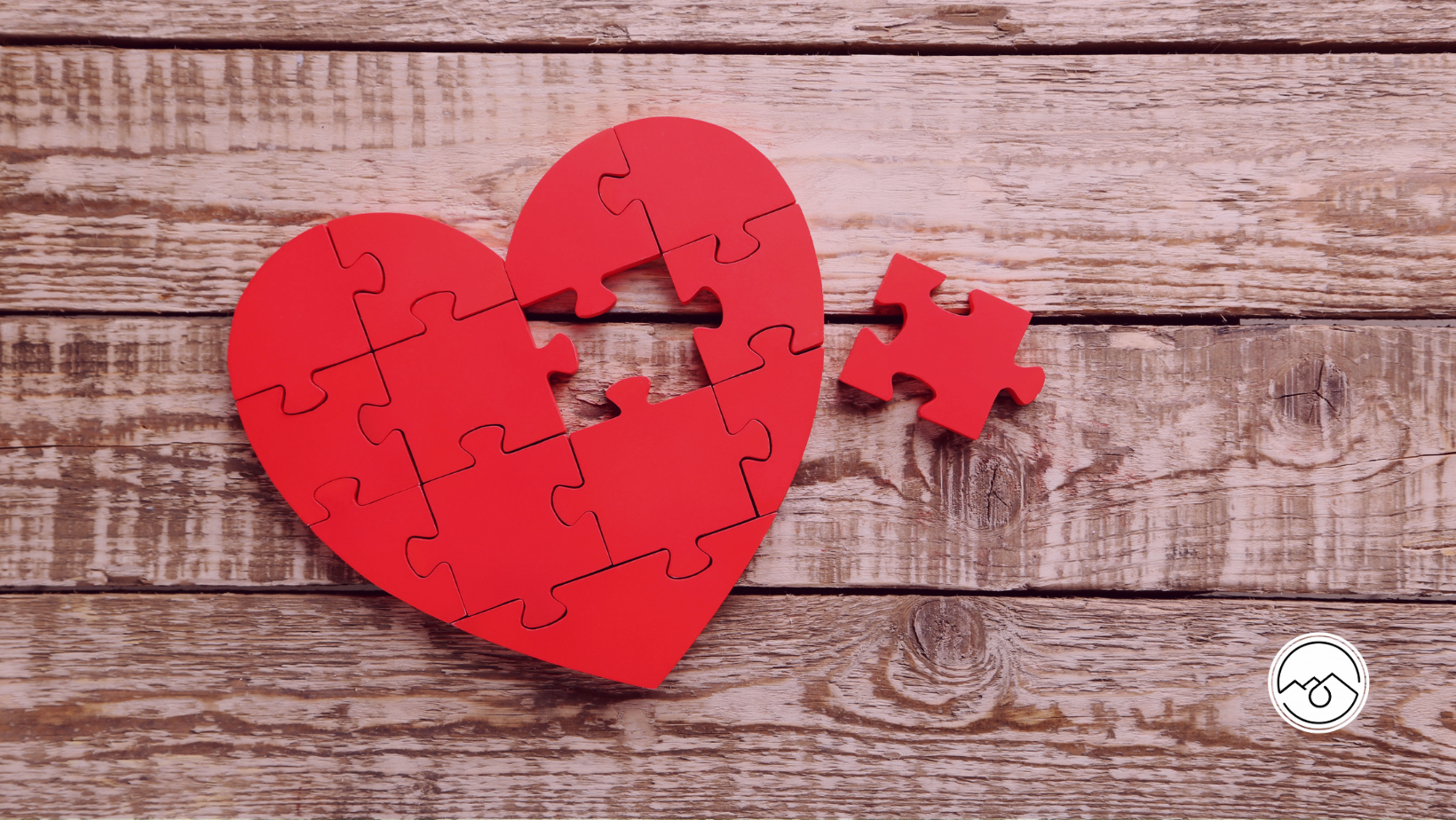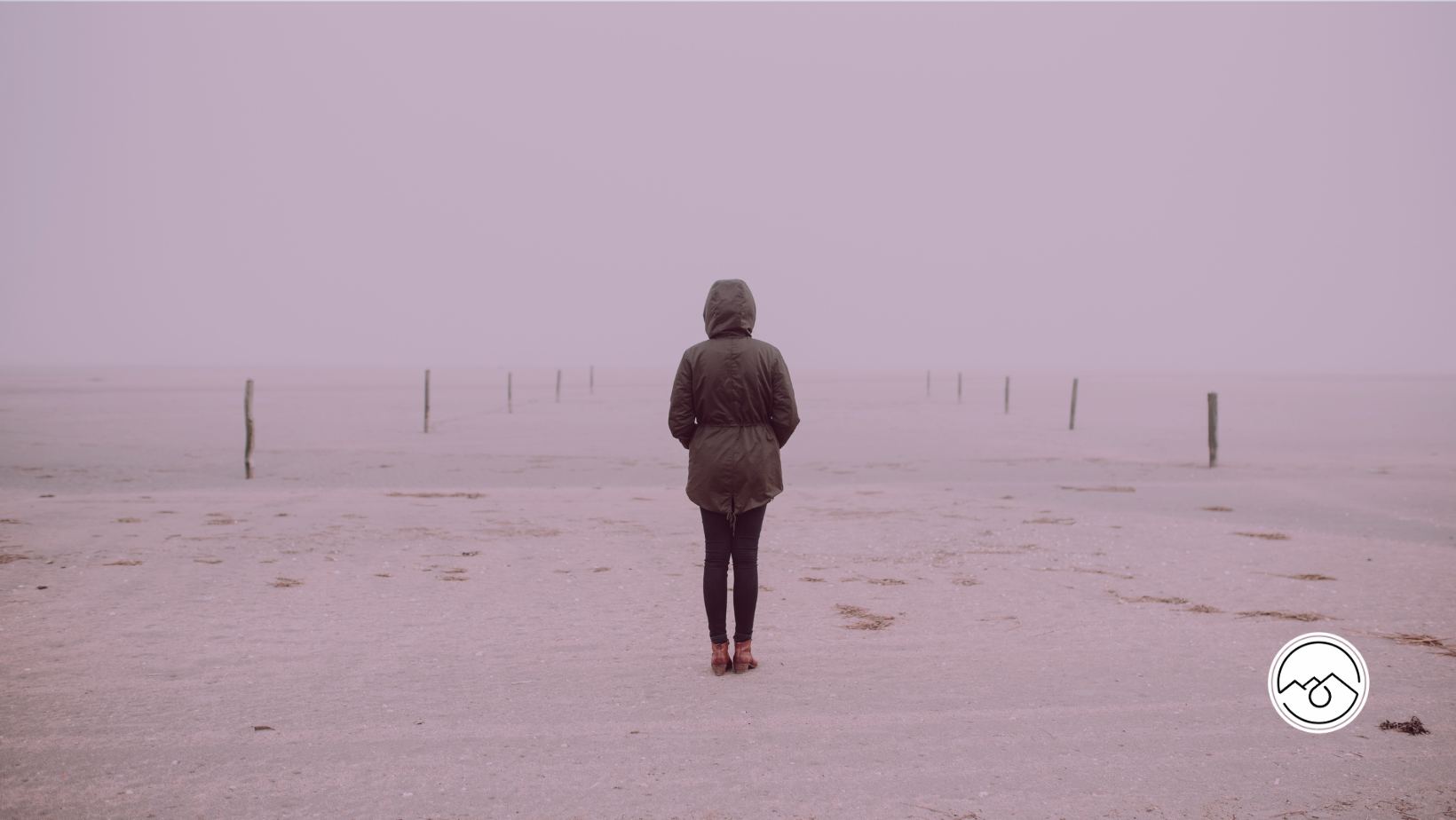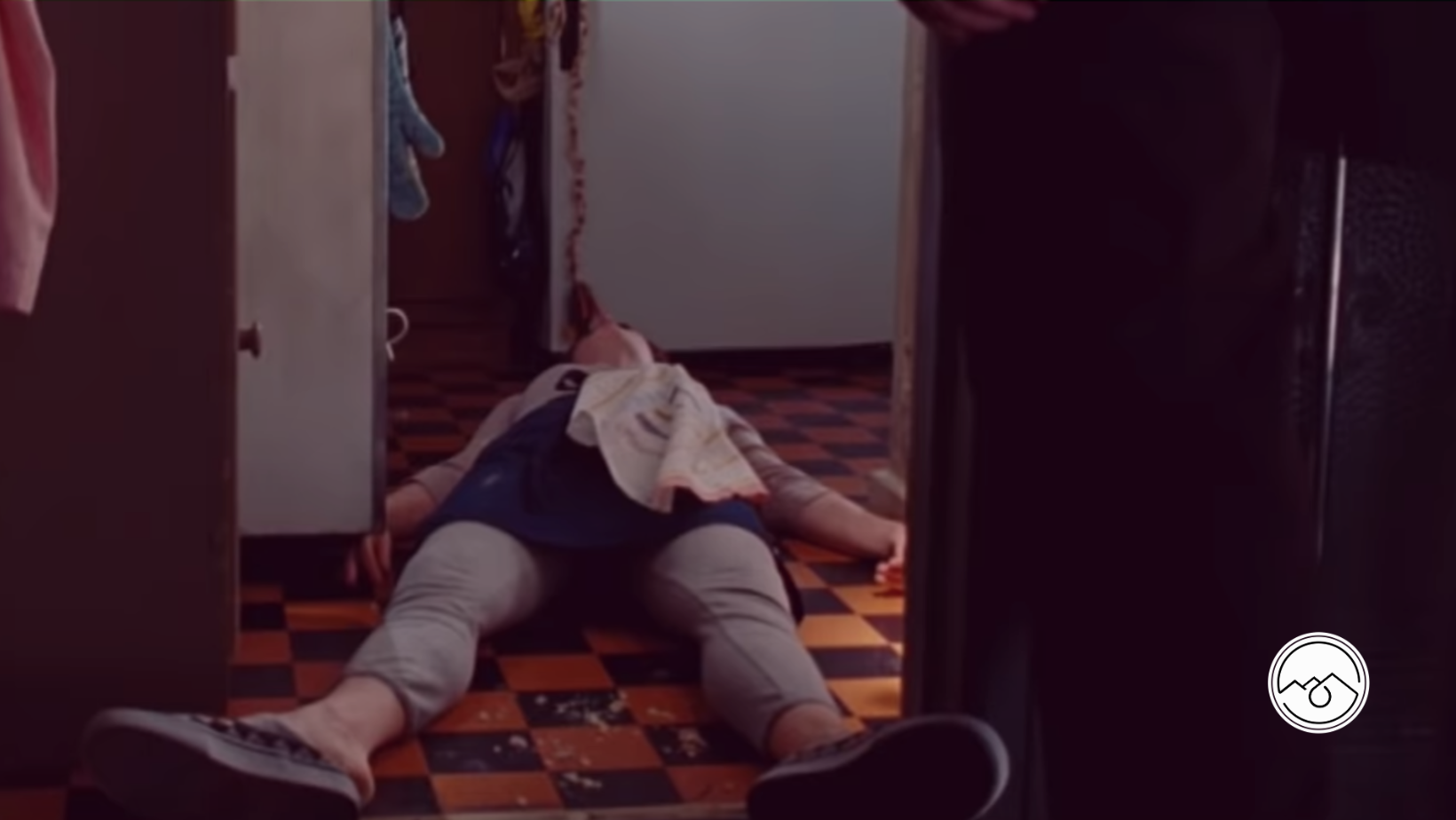Blog Post #47
Little You: Understanding
Your Nervous System
You have had personal power your entire life, but if it was conditioned on you to give your power away.
You've been doing that in just about every area of your life and it hasn't really been your favorite thing.
Today we are talking about little you.
It's that little person that got stuck in the past that when she was developing her little brain and doing the best she could.
She was receiving instructions from adults that were at least 20 years ahead of her who had 20 years of time and growth opportunity to gain wisdom and tap into their own intelligence and then guide you.
Now, some of our caregivers were mature because they were nurtured as children.
Some of our caregivers, like mine, were immature adults.
They were just grown adults looking everywhere they could to figure out where love was found because they felt like they were lacking love, okay?
When that's happening, little us gets a little confused. Little you was like, they're telling me what to do. I have a lot of incoming information.
My brain's trying to process, it's trying to understand what I'm supposed to do to earn that smile.
Remember when we talked, I'm not sure which episode it was, but we talked about being infants.
When we were infants we learned to play this game with our parents and it was very, very automatic, right?
It was like, oh, my smile reflex just showed up and every time I smile, they smile. They smile at me, I smile at them.
This is a cute little game that we play and we have been working for that smile ever since.
We're trying to be good enough, happy enough, responsible enough, funny enough, lovable enough.
We are trying to earn that smile that says you're doing it right.
It's that validation we keep looking for.
Every time we're looking outside of us for that validation, we got lost.
In this particular episode, I wanna talk about the little person that did get lost.
She didn't get developed, nurtured, or her nervous system didn't get regulated.
Let me also explain that babies cannot regulate their nervous system.
The nervous system starts in the brain, right? It's all here and it's all here.
Whatever information the nervous system receives because remember I talked about ControlZilla?
ControlZilla is hardwired to keep us safe.
This is ControlZilla.
She's not really trying to burn down buildings and spread shame. She's trying to keep you safe from things that maybe feel dangerous.
Now we're not running from tigers, lions, or bears.
Danger in this sense means looking out for is a fear from your past.
It's looking out for somebody that might diminish you.
That is a fear from the past.
Our brain doesn't know anything about the future. It's never been there.
But it knows an awful lot about the past because it's just been collecting data, information constantly since the day we learned how to smile.
Let's go back to that idea that babies cannot regulate their nervous system.
Their nervous system is telling them I'm hungry, but I don't have any other way of expressing myself other than crying.
We cried to get our our bodies fed.
We cried to get sleep that we needed.
We cried to get our diaper changed.
We cried to be held.
We cried if there was pain so we could be comforted.
All of that required co-regulation.
It required somebody else coming in with a, let's hope calmer nervous system and picking up the little infant that had a dysregulated or activated nervous system because something was wrong.
They were trying to get their needs met and coming together to calm the baby down.
We're just doing this rocking, walking, patting with the baby, trying to get the baby's nervous system to re-regulate itself, which it does very naturally.
If baby's crying, you pick it up, hold it a little bit, pat, pat, pat, get the burp up, whatever, the baby's fine, regulated.
What happens then is when we are filtering all this information, our parents are like, go get your shoes, make your bed, why'd you make a mess, eat your food, why'd you throw it on the floor, la la la?
We're just like, I don't know, I don't know, I don't know, I don't know.
If we don't have any co-regulation from all of this, what do they need so I can get their smile?
I can get regulated, right? That smile was a very big co-regulator for our nervous system.
Brought us all the calm we needed.
We must be doing it right.
I must be the baby I'm supposed to be.
When you were growing and more responsibility, more expectations were being placed on you.
You should be able to know how to get dressed now.
You should be able to brush your teeth by yourself.
You should be able to put your own laundry away.
You should be able to keep a schedule.
All these things that are incremental and age appropriate as we got older and older.
If we did not have that nurturing, that co-regulation that when we got frustrated or overwhelmed or confused or irritated or sad or mad or however those big emotions, were expressing themselves.
If we didn't have somebody that was doing something in the nurturing sense and not just saying, stop it, quit it, and just denying and diminishing our needs.
We didn't have the regulation, then we got stuck.
We got stuck at that age at that time, unless we had a way to dispel the charge of energy that went through us when we were in fight or flight trying to get mom's needs met and I don't know what she needs.
I don't know how to fix her unhappiness.
That discharges this chemical soup in our body that puts us in fight or flight.
Now let me give you one more tidbit here.
I'm just pulling all every piece has an individual part to play. They don't all fit in the same spot. Of course you did. Of course you knew that.
But that's what we're doing right here.
I just kind of want to give a snapshot.
We're pulling all the pieces and they all fit differently into this puzzle.
As I'm giving you more information, it's okay if it doesn't all make sense because if you have parts of a puzzle put together, it doesn't all make sense yet, but it will.
As we pull all these puzzle pieces together, okay?
In the middle of your body, there is a muscle and it crosses over and it ties the upper half to the lower half through your nervous system together. It's called the psoas muscle.
When we go into fight or flight as a child, well, it could be on the playground, Johnny's chasing us and we don't like it.
It could have been in the classroom.
Teacher calls on you and you don't know the answer and you're embarrassed or shame.
What are you feeling, shame? Okay, fight or flight.
We will either fight, which is defensiveness, defend ourselves, explain it away, or we will flight, which is run away, disappear, be invisible, don't deal with it. Or we're in freeze mode.
I didn't know she was going to call on me. I don't have a plan.
We just sit there and do nothing, but we have a lot of energy running through our body and nowhere for it to go.
Have you felt that before? It's like the, if one foot's on the gas in your car and the engine's revving high, and then you've got their brake on the other side, pressing hard till the car can't go anywhere.
Now you're just burning the engine up, right?
If you do that in your nervous system for a long period of time, because you have a lot of those little pieces of you stuck in the past because she didn't have a handbook, she didn't have a co-regulator, she didn't have a nurturing or any kind of support to dispel the discomfort of fight or flight, then that can run a course that turns into exhaustion.
That also can turn into a downward spiral, if you will.
You may not even know you're going through it.
You just wake up one day and you're like, I don't care. I don't care and I don't know why I don't care. I just don't care anymore. That's called dorsal.
If you go into that state of dorsal mode, which is like a bear going into hibernation, it's just not gonna come out. It just doesn't care, right?
That is a state of your nervous system still trying to keep you safe.
It's like if we don't know how to handle all this.
Our nervous system's going crazy, and the fight or flight is high, and the engine's been rubbing for a long time.
We just can't get our foot off the gas because we don't have a handbook.
We don't have a playbook, we don't know how to handle the situation that keeps popping up in front of us, then we go into dorsal mode. That might take 10 years.
I'm just saying it could be quickly, but oftentimes it's just pushing until you can't and then you just go into a depression, if you will.
A depression is a dip. I think we covered that once before in an episode.
The depression is a dip. Depression isn't an endless hole.
Just want to make that clear that it's not hopeless, right?
Depression is just this dip in your emotional state, in your ability to handle overwhelm and stress.
If overwhelming stress are there, constant, constant, constant, we will go into the dip.
The dip is just a respite. It's just like, I can't keep going at that pace, so I'm just going to chill.
I'm going to go into hibernation mode.
Picture a bear walking into its den and just walking around in circles six times and laying down.
That's the end of that until spring rolls around. Right?
You will have a season of spring if you are in a depression, but understanding how you got there is the first step.
Just understanding right now we're just covering the bases to help you understand what's going on in your body.
It's only been 12 minutes that we've been talking about this.
There's a lot of information being packed into this very short space and time, but I'm trying to give you the big picture like we're standing on the mountain, getting the 10,000 foot view before we dive into the different aspects of what to do about it, okay?
Your nervous system is made up of little U and big U.
That's the little person that got stuck in the past.
It could be 100 different ways, and the person you are today that has had that life experience and figured out a few things along the way, that has the ability to think about what you're thinking about so that you can stop and go.
Why am I triggered? Why am I activated?
When you can start to say, ooh, I feel triggered, or how come I always have this feeling that there's impending doom?
If you can recognize that, that's anxiety.
Why do I have impending doom? Why does my gut hurt, right?
That psoas muscle crosses over right here in the middle and it tightens up and tenses up with stress, held in the fascia which is a whole other topic.
I'm just gonna throw fascia out there and just let it be there. Just, it's a piece of the puzzle, okay?
That your body is tensing up because you don't know what to do because there is a sense of flavoring, a hint of something that scared you back then.
When I say scared, remember we're not talking about lions, tigers, or bears.
We're talking about does mommy not love me right now?
You know, you did something naughty, mommy got angry, and it feels like there's no love inside, no smile. Okay?
If there is a sense of that in your history, even if you don't remember it, it doesn't have to be a conscious memory.
If there is a hint, a sense, or a flavoring, not in an exact match, of something that happened back there that is happening in your present life, something's going on right here, right now, and you are activated, you go into fight or flight, you go into freeze mode, I don't know what to do.
You go into fawn, I'll do whatever you need me to do.
That is your nervous system trying to keep you safe.
When your brain can go, ooh, what is that?
Why am I scrambling to make sure they don't get mad at me?
Why am I scrambling so that I don't upset someone or fail or disappoint somebody?
What am I doing that is not calm and peaceful?
That is little you.
Little you that's like still trying to navigate that part of your life that you didn't have any help with guidance and direction and support and co-regulation. Right?
That's what that is.
It's leftover energy that did not get discharged back when you were startled or back when you were trying to defend yourself and nobody was listening and nobody would see your side of the story and nobody would hear you or nobody would. Right?
Those things got stuck in the past.
Little you is still here. Still here.
Tap, tap, tap on your shoulder. Please pay attention to me. I need some help.
I need some guidance. I need some support and I need some co-regulation.
When I say those words, I'm putting this motion of tapping on my chest.
That is the most important thing is bringing yourself reorienting yourself. Like, where am I? Oh yeah, I'm not in the past. Oh, I'm right here. I'm right here right now. I'm actually not in danger.
Did you know that in all of my coaching, the number one aha moment, which kind of surprised me, but I tested it over and over and over and every single time, the one aha moment that everybody had was, you're not in trouble.
What? I'm not? I'm not in trouble.
I'm not in trouble with my spouse. I'm not in trouble with my boss. I'm not in trouble with my religious leaders.
I'm not in trouble? Gosh.
If I'm not in trouble, then what am I? Why do I feel this way?
It's little you. Little you was trying to stay out of trouble as often as possible.
Now some of us were a little more challenging and we kicked against our parents and we challenged them on, you know, you're going to punish me? Oh yeah, watch this.
You were, you still didn't want to be in trouble. You were just begging for your freedom, right?
That's all that was happening there.
If you were afraid of losing your parents' love, because you sensed love was conditional when it's not.
Love is unconditional.
It's accessible to everybody all the time.
But if you sensed it was conditional and that your parents would somehow unloved you, back then when that was all you cared about, love and be loved.
To love and be loved.
That's all you wanted. It's still all you want.
If that was a risk, if that was scary, there is a sense of that happening in your life when you are activated, triggered, anxious, depressed, fearful, overwhelmed, you name it, sad, angry, all of the things, all of the big emotions.
That is the sense that you're having now.
Little you still need your presence you're reorienting to the present moment to help yourself because she still needs you to remind her you're not in trouble.
This is not back there.
This is right here and I'm with you now and what that does is your older wiser higher self that always chooses to operate from love and light because that is who you really are. You're love and light.
You're not all these fears and worries and doubts and all the things.
You are just love and light.
When your higher self, your inner wisdom, your inner knowing, infinite intelligence, whatever you want to call it, when that person takes little you by the hand and says, come with me, I got you, we're going to figure this out together, even if we don't know what to do, we'll get still and we will figure out what to do.
We will talk, we'll phone a friend, talk to the people we trust.
We will figure out what to do in this moment.
Neither of us will be scared or uncertain or stuck and immobile.
We will move through it.
The little you will go, thank you.
Thank you for being here with me.
That feels so much better to feel guided and supported and have someone to co-regulate with.
Now, ideally, it'd be great to have somebody in your life that you can co-regulate with.
A spouse, a loved one, a friend, whoever.
If you don't have anybody, you have you.
Let's just say you always have somebody.
You do have you.
You will always have you.
As I've talked about in prior episodes on emotional responsibility, it is our job, if our parents did not know how to nurture us, there's nothing we can do about that now.
It didn't feel good then, in our memories, it still doesn't feel good now, but it's not a reason not to support yourself fully, because that is where your personal power lies in the things you can control.
If you are controlling how you feel and the quality of life you live, you must take hold of little you.
Little you is begging because she doesn't know what to do.
She's underdeveloped. She's begging you to show her how to grow up, how to be mature.
You are now the nurturer. You become the parent to you.
You don't know this to anybody else. You're not their parent.
Your emotional responsibility lies with you.
When you stay with you, this is what it means to self-love.
This is the antithesis to self-abandonment.
I'm gonna do for everybody else because I don't know what to do for me. Or I'm gonna do for everybody else because that's the only way I'll get love.
That's self-abandonment.
When we are right here, I just keep pointing to my heart because that's where little you lives.
It's in your heart.
She's the sweetest. She's the one that will be the most Christ-like. She will try and save everybody.
Mom and dad are mad. I will be happy. I will be bright. I'll be whatever you need me to be to overcome your pain.
A child's greatest pain is watching their parents struggle.
Now, if you're struggling and you have children that are watching you struggle, that is not a reason not to take a step back.
Breathe and reorient to all I have is right now.
In this moment I can make a difference and in this next moment I can make a difference and in the next moment I can make a difference.
It can make us freak out a little bit.
If we think, oh my gosh, I'm a mess and my kids are watching and now I know that if they're watching, that's their greatest pain is to try and overcome my pain and then they take on my pain and then the patterns continue.
Yes, but not if you're taking hold of this right now and saying, okay, I know it's been that way in the past, but I'm here to break generational trauma patterns and it has to start somewhere.
It's gonna start today, on a Thursday, in the middle of the week.
It happened to be on my radar today to listen to this podcast episode and go, you know what, I am a pattern breaker.
I don't wanna settle for what I saw my parents do.
I don't want my children to be little you stuck in a large adult body going, I don't know, I don't know.
That's you today, that's who I am.
I may only be one Sunday ahead of your Monday in figuring this out because it's literally been in this year while I've been doing my own healing journey for probably 40 years, it's intensified.
It's intensified in the last six years.
In the last six years, there was a very, seemed like forever long dip, a depression.
I was in the dip and came out of it, let's see, about nine months ago.
Since then, I have been on this steep trajectory to understand the autonomic nervous system and how it's working so hard and so perfectly to keep you safe, it is not broken.
When you go into a dip or a depression, you are not broken.
When you're in overwhelm and overdrive and over exhaustion and over the things, you are not broken.
Your nervous system is trying to help you survive.
The good news is you are surviving.
The good news is you can help yourself and you can be the support for you.
I don't care how old you are. That's irrelevant.
The only thing that's important is that you grab hold of this person who you are right now, who she is, that little you inside of you that needs your attention desperately.
I don't care if you're like, yeah, but the house is dirty and I need to clean it. No, no, no, no, no.
I don't care if it's like, yeah, but I have responsibilities.
I have to go to work and pay the bills. I know, I know.
What I'm trying to get you to say or realize is that you can do this anywhere.
You can do this from any state of being.
You can do this when you're in the middle of making lunch for 95 kids.
You can do this wherever you are.
When you wake up in the morning and to when you go to bed at night, doesn't mean that you're not gonna feel tired.
It doesn't mean that the overwhelm goes away overnight.
It doesn't mean that you should have any set expectation other than I noticed me today.
I noticed her. She just was like crying. She was crying.
That's all a trigger is. That's all an activation in your nervous system, in your body is.
I wanna point out one more thing.
This is not talk therapy. It's not talk therapy.
We can understand it all day and then when our bodies are like, I can't, I'm tired, I don't know.
You know, give me a soda. I don't have an answer.
Your body is where you stored all the trapped emotions.
All the underdeveloped parts of you are in your body.
They're not in your brain.
It's just that your brain is hardwired to keep you safe.
It's thinking thoughts that trigger your nervous system that sends a chemical soup out into your body that makes you feel the way you feel.
That's the process.
That's all that's happening. It's not wrong to feel the way you feel.
We have to acknowledge that you feel the way you feel because that is information for you to go, oh, I feel this way.
Then, okay, I'm gonna put one more thing on the timeline.
I've said this before in previous episodes that truth takes you further towards feeling good and false beliefs take you further from feeling good.
Getting closer to feeling good has more truth and truth, light, love. I use them synonymously.
If you've got more love in your life, more light in your life, more of the truth in your life, it's going to feel better.
Patterns in our life, the negative emotional states of being.
When you have false beliefs, you're telling yourself an untruth.
Maybe it's self-imposed, maybe it was taught to you and it makes you feel bad, which triggers your nervous system.
Now you're activated, you're fighting, you're running away, you're frozen in place or you're fawning.
I'll be whatever you need me to be just so you can be happy.
I won't worry about my needs. That's you're somewhere in there.
When you're sliding into a state of activation in the nervous system, because false beliefs are putting you in danger of being unloved, rejected, abandoned, or all the things that we fear the most, right?
I just want to reset you right now. I'm gonna bring you back to center. I'm gonna bring you back to this moment that we are spending time together in.
I want you to know, you were born love and light.
Your little nervous system wasn't conditioned to believe anything.
It was just always regulating, dysregulating, co-regulating back and forth.
Need a diaper change, need food.
You received those things that you needed, co-regulated, picked up, hugged, held, rocked, and nurtured. Okay?
We all received that at some point because we all survived.
Babies can't survive without touch, right?
We received it to some degree.
As we got older, it might have fallen apart.
The wheels came off because our parents were emotionally immature or unavailable.
We didn't know what to do to help that situation because our little loving selves were trying to do anything and everything to stay out of trouble but really trying to maintain a connection and love with our caregivers and when they disconnected we did not know what to do with that.
Bringing it back you do know what to do with it.
I want to give you all the confidence in the world that you know what to do with this because the higher self.
The infinite intelligence in you does know how to nurture little you and to say, wow, you are safe because you're with me now.
You're safe.
Even though we don't know what to do in this moment, we're just gonna be here because we can look around and notice there are no tigers, lions, or bears here and there's no parent now threatening to unlove us because we didn't put our shoes away or because we didn't do what they told us to do the second they told us to do it.
That threat is no longer here.
Now if you're in relationships that keep bringing up those feelings of being in non-secure attachment relationships, we'll talk about that further.
Just know the beginning step of tapping into your personal power is to be here with you.
Little you is upset and an adult you needs to be right here, it's like, why are you upset? Oh, you have needs going unmet, let's figure out what those are.
Do you need a nap? Okay, how about some food? Okay, do you need a hug?
Is there somebody safe that you can go and get a hug from?
Okay, you're just right here, noticing she's here, noticing she has needs, and noticing you have the power to act on it.
You have had the power all along, and taking your power back is supporting yourself emotionally by being present, knowing little you is trying to grow up and you're gonna help her.
Thank you for wanting to know more and letting light knowledge in.
The more you know, the better you can do.
If you have questions, please reach out at teresafordcoaching@gmail.com or you can find more information on my website at teresaford.life.
Note: You can access the full blog content in audio versions on Spotify and YouTube. Happy listening! 🎧
.
.
.
#somatic #somaticpractice #nervoussystemregulation #nervoussysemhealing #nervoussystemhealth #traumainformed #emotion #stressrelease #traumarelease #stressrelief #somatichealing #sympatheticnervousystem #rest #relaxation #overstimulated












